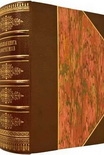Coconut Chaos, Diana Souhami [leveled readers TXT] 📗

- Author: Diana Souhami
Book online «Coconut Chaos, Diana Souhami [leveled readers TXT] 📗». Author Diana Souhami
It seemed there was no transparency from anyone except Lady Myre, who perhaps was entirely mendacious but gave the impression of being frank. The paranoia and concealment of Pitcairn’s history pervaded the room. Mary then said Wednesday at her school was Culture Day, and Lady Myre and I were invited to attend this week, as special guests. Nola Young would be teaching the children how to cook the manioc root and there’d be one or two other subjects of discussion. We should be there at ten.
Lady Myre wanted to get back to the computer while the generator was still working. ‘Come along,’ she said to me as if I were her spouse or dog. She asked if she might take the remains of her supper with her to feed the cats. She said she was a bird person really, but life was life, and she loved it. I suspected more candid conversation might begin after we’d gone.
The moon was high and clear and seemed further away than at home. Lady Myre linked my arm as we passed the unfinished prison and the health clinic where Dr Scantlebury had slept at night. At our lodging, at either side of the door to the outside lavatory – the dunny as it was called – stood two large land crabs. Each had the legs of a cockroach sticking from its mouth. I shared this observation with Lady Myre, who made a trilling noise of alarm. There was no communication from Sir Roland or from Verity. There was, though, a familiar update on mother, who’d thrown her bedding out of the window at Sunset View.
34
In August 1791, on a ship called Providence with an escort brig the Assistant, Bligh left on a second attempt to take breadfruit from Tahiti to the West Indies. Two botanists were on board to supervise the venture and to collect rare plant specimens for the Royal Botanical Gardens at Kew.
It took thirty-six weeks to reach Tahiti and for the first six of those Bligh was very ill. He thought he was going to die and he assigned command to his lieutenants. He had a constant and terrible headache and ‘burning heat’ in his skin, his face was flushed, he lost his balance, found the least sound intolerable, had a sinking feeling in his stomach, ‘a lowness and flurry of spirits’ and couldn’t bear the sun on him. The surgeon thought he had some nervous illness.
The Providence passed Pitcairn in April 1792. Like Edwards in the Pandora the previous year, Bligh had no inkling of what was going on there. He again warned his crew they mustn’t say anything to the Tahitians about Captain Cook’s death or why all these breadfruit were wanted, and he threatened ‘disgrace and punishment’ to anyone who disobeyed his commands.
The Tahitian chiefs were again flattered that he’d come to see them as King George the Third’s emissary. Their queen Obereroah visited him on the ship, but was so corpulent she had to be winched on board in a chair. She asked for beads and other things. Bligh declined her reciprocal offer of one of her maidservants.
There was the usual barter. The English wanted exotic souvenirs: war mats and wickerwork breastplates adorned with sharks’ teeth. The Tahitians wanted nails, firearms, hatchets, knives, scissors, mirrors, brandy. But they were ever more wary of these English mariners. The crew of the Pandora had brought an infectious epidemic and given them more venereal disease. The Tahitians told Bligh of the now fatherless sons and daughters of the mutineers. ‘I have seen none of the sons and some are said to be dead,’ Bligh wrote in his log. He did, though, see the midshipman George Stewart’s daughter ‘a fine child, a very pretty creature’. Her father had drowned, aged twenty-three, in the wreck of the Pandora.
From the chiefs Bligh learned of Christian’s return to Tahiti, his attempt to settle on Tubuai, his second visit, then departure for some unknown place. He heard how the men who’d stayed built the Resolution, which was taken by Captain Edwards, and how Churchill and Thompson became jealous of each other, so Churchill stole Thompson’s musket and shot him dead and then friends of Thompson beat Churchill’s brains out. The chiefs told Bligh that though they’d given Christian sails and all he wanted, they’d treated him with coldness and were happy when Edwards carried the rest of the English away.
As in 1788, Bligh set up a nursery on shore for the plants to establish. He intended to sail ‘with every inch of space filled up with plants’ and by 6 May 1792 he had 1281 vigorous saplings potted. A greenhouse was created on the quarterdeck, the sailmakers made covers and the carpenters made scuttles to give air when the portholes couldn’t be opened. The ship was cleaned and painted, a hundred tons of water were casked from the River Matavai, hogs and fowls were caged on board, the islanders helped load the breadfruit and the ship sailed in August. Two Tahitian boys were on board. One had stowed away and when found became known as Jacket or Bobbo. The other, Maititi, sailed as a servant to Bligh.
Bligh’s second breadfruit voyage was relatively uneventful. His route from Tahiti was to Timor through the Torres Strait, across the Indian Ocean, around the Cape, and north-west to Jamaica. On the journey one of the crew died from arrow wounds in a skirmish with fishermen, another from cold and ‘an improper use of arrack’, and two from malaria contracted in Coupang. The stowaway, Bobbo, was left in Jamaica to help the gardener there, but he died after a few weeks. Nine





Comments (0)